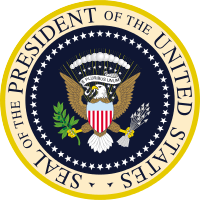Georgia gubernatorial election, 1970
| | |||||||||||||||||||||||
| |||||||||||||||||||||||
| |||||||||||||||||||||||
| |||||||||||||||||||||||
| Elections in Georgia | ||||||||||
|---|---|---|---|---|---|---|---|---|---|---|
 | ||||||||||
|
||||||||||
The Georgia gubernatorial election of 1970 was held on November 3. It was marked by the election as Governor of Georgia of the relatively little-known former state Senator Jimmy Carter after a hard battle in the Democratic primary. This election is notable because Carter, often regarded as one of the New South Governors, ran for President in 1976 on his gubernatorial record and won.
Democratic nomination
Under the Georgia constitution of 1945 incumbent Democratic Governor Lester Maddox was prohibited from seeking re-election.
Initially the strongest candidate was former Governor (1963–67) Carl E. Sanders. Sanders was a moderate, who worked to improve education, the environment and led the transition away from racial segregation with cooperation with the United States Federal Government. He left office at the peak of his popularity.
His main opponent was former State Senator and candidate for the gubernatorial nomination in 1966, Jimmy Carter.
Carter ran on a populist platform. He refused to join the segregationist White Citizens' Council, prompting a boycott of his peanut warehouse. He also had been one of only two families which voted to admit blacks to the Plains Baptist Church.[1]
Democratic Primary election results
Carter finished first, but failed to win a majority in the Democratic primary on September 9:[2]
- Jimmy Carter – 388,280 (48.62%)
- Carl Sanders – 301,659 (37.77%)
- Chevene B. "C. B." King – 70,424 (8.82%)
- Ku Klux Klan leader Jesse Stoner – 17,663 (2.21%)
- McKee Hargett – 9,440 (1.18%)
- Thomas J. Irwin – 4,184 (0.52%)
- Adam B. Matthews – 3,332 (0.42%)
A runoff was held on September 23:[3]
- Carter – 506,462 (59.42%)
- Sanders – 345,906 (40.58%)
Despite Sanders's initial front-runner status and popularity, Carter won by nearly 20 points.
Lieutenant Governor
Governor Maddox ran for Lieutenant Governor and won the nomination. Although Maddox was elected as a Democratic candidate at the same time as Jimmy Carter's election as Governor as a Democratic candidate, the two were not running mates; in Georgia, particularly in that era of Democratic dominance, the winners of the primary elections went on to easy victories in the general elections without campaigning together as an official ticket or as running mates.
Republican nomination
At this time, Georgia was still regarded as a part of the Democratic Party's Solid South. However, in 1966, the Republican candidate won a plurality in the gubernatorial race, because of Democratic division, but the Democratic-dominated legislature elected Maddox (if no candidate gained a majority of the popular vote, the Georgia legislature at this time had the right to choose the Governor).
However, the Democratic position in 1970 was again regarded as safe. TV newsman Hal Suit faced former Democratic state official James L. Bentley.
Republican Primary election results [4]
- Harold Columbus "Hal" Suit (1922–1994) – 62,868 (60.97%)
- James L. Bentley – 40,251 (39.03%)
General election results
Carter won the governorship easily.[5]
| Party | Candidate | Votes | % | ± | |
|---|---|---|---|---|---|
| Democratic | Jimmy Carter | 620,419 | 59.28% | ||
| Republican | Hal Suit | 424,983 | 40.60% | ||
Despite his electoral platform, Carter soon announced that the "time of racial segregation is over"[6] and became one of the more progressive southern governors (alongside Reubin Askew of Florida, Dale Bumpers of Arkansas, and John C. West of South Carolina) who pushed desegregation and integration.
References
- ↑ The Claremont Institute - Malaise Forever
- ↑ Our Campaigns - GA Governor - D Primary Race - Sep 09, 1970
- ↑ Our Campaigns - GA Governor - D Runoff Race - Sep 23, 1970
- ↑ Our Campaigns - GA Governor - R Primary Race - Sep 09, 1970
- ↑ Our Campaigns - GA Governor Race - Nov 03, 1970
- ↑ Longin Pastusiak, Prezydenci, volume III

